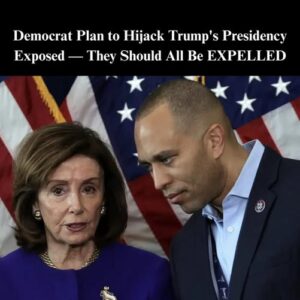A federal judge in Oregon has temporarily blocked President Trump’s attempt to deploy National Guard troops to Portland, pausing the plan for at least two weeks. U.S. District Judge Karin Immergut ruled that the deployment likely violated the Tenth Amendment, which reserves certain powers to the states. She emphasized that local and state governments have the primary responsibility for maintaining public safety, and federal intervention of this magnitude requires state consent. The ruling came amid renewed unrest in Portland and broader tensions between Democratic-led cities and the federal government over local control.
The Trump administration had described Portland as suffering from lawlessness, while state and city officials argued that federal involvement could escalate tensions rather than resolve them. The decision temporarily halts preparations for a large-scale federal deployment. Judge Immergut’s legal reasoning rested on constitutional limits to federal power and cited the Posse Comitatus Act, which restricts military involvement in civilian law enforcement.
While the federal government can protect its own property and personnel, Immergut noted this authority does not extend to general law enforcement. She stressed that recent protests did not justify overriding state control of public safety. Oregon leaders welcomed the ruling. Attorney General Dan Rayfield called it a victory for constitutional balance, and Governor Tina Kotek said deploying federal troops could have made the situation worse.
City officials echoed these concerns, citing past experiences with federal forces in Portland as divisive rather than helpful. The Trump administration criticized the decision, arguing that the president has the constitutional authority to defend federal property. Legal experts are split: some see the ruling as a necessary check on federal power, while others worry it limits the government’s ability to respond to emergencies when local efforts fall short. As legal proceedings continue, the issue may eventually reach the Supreme Court. The situation highlights enduring tensions over federal versus state authority and how best to maintain order during periods of unrest.





